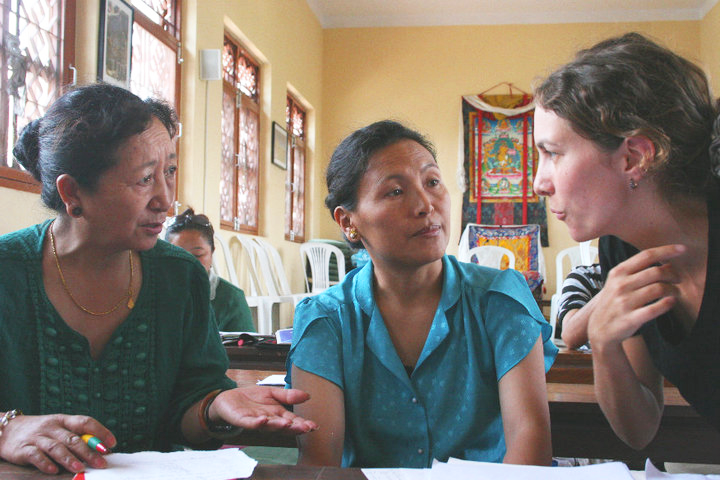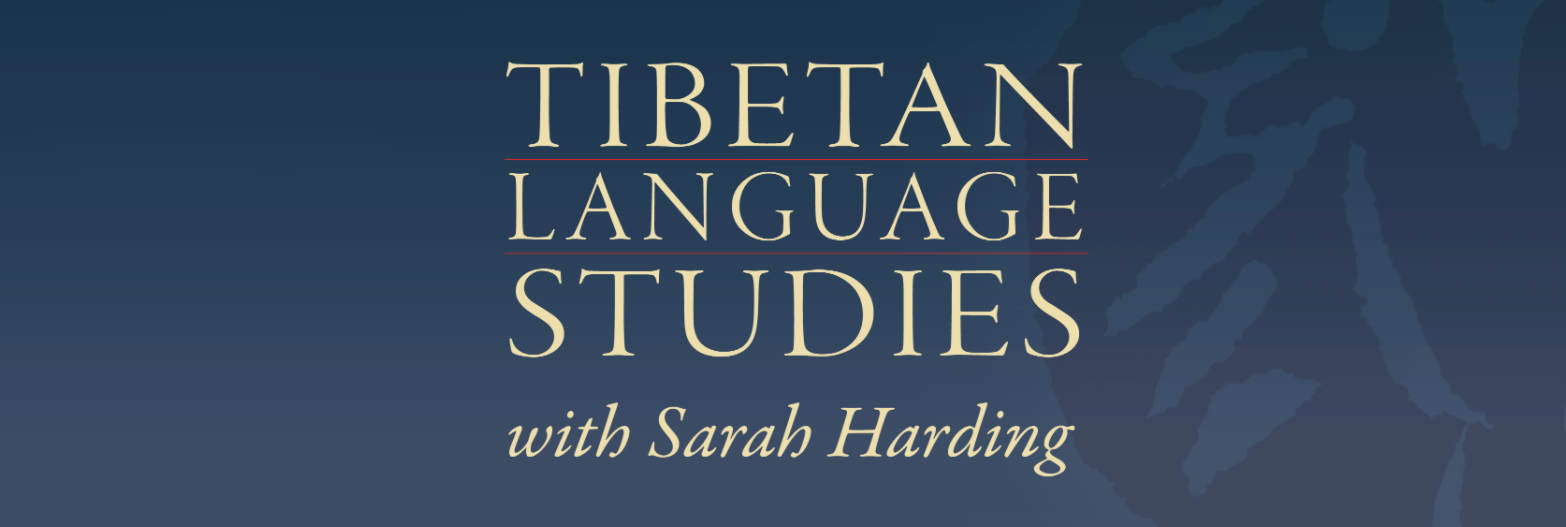Summer Intensive Tibetan Courses
Are you looking to develop your Tibetan language skills? Opportunities abound for language study this summer in the United States and South Asia. Most programs offer either classical or colloquial courses, and many are offered for credit through affiliated universities. Online courses are also available in self-study and interactive formats and are a great way to get started right away.
Tsadra Foundation’s Research Center will offer for the first time a short intensive program this summer during the last two weeks of August (13 – 25). The courses, offered for three levels of students–beginning, intermediate, and advanced–will combine the study of spoken and written Tibetan with opportunities to develop skills in translation and oral interpretation for advanced students. Lama Sarah Harding will teach the advanced reading class and Doctor Jules Levinson will facilitate oral interpretation practice from Tibetan to English. Visit the website for more information.
Colloquial Tibetan Studies
University of Virginia’s Summer Language Institute offers an intensive course in colloquial Tibetan which runs for eight weeks (June 17 – August 10) and is hosted on campus at UVa in Charlottesville, Virginia, USA. Franziska Oertle, who has taught Tibetan at Rangjung Yeshe Institute in Nepal and the Institute for Buddhist Dialectics near Dharamsala, India, will be teaching alongside her colleague Gen Phuntsok Dorje this summer. The course is offered for the equivalent of twelve academic credits, but also for non-credit-earning study. More information can be found here.
University of Wisconsin’s South Asia Summer Language Institute will also offer summer intensive courses in modern South Asian languages, including colloquial Tibetan and Sanskrit, from June 18 through August 10 in Madison, Wisconsin, USA. Apply for this program here.
For those interested in travel to South Asia, two notable programs for colloquial Tibetan language study are Rangjung Yeshe Institute, Kathmandu University’s Centre for Buddhist Studies (RYI) and Esukhia. RYI also offers classical Tibetan courses on campus in Kathmandu.
RYI’s summer intensive programs offer three levels–beginner, intermediate, and advanced–of colloquial and classical Tibetan, and two levels–beginner and intermediate–of Sanskrit. These programs run from June 13 through August 10. Students have the option to live with Tibetan host families, experience the bustling city of Kathmandu, and explore sacred sites in the surrounding valleys. Read more information about these courses and apply for them here.
Esukhia, based in McLeod Ganj, Himachal Pradesh, India, runs a summer intensive program in Ladakh for either one or two months of study starting July 2 and running through August 25. This program features homestay experiences with Tibetan families living in the small town of Choglamsar just outside of Leh. Visit Esukhia’s website here.
Classical Tibetan Studies
Studying classical Tibetan is also a possibility in an intensive format this summer, both for-credit and not-for-credit. Maitripa College, in Portland, Oregon, offers intensive classical Tibetan language study which introduces students to vocabulary and grammatical structures and guides them through translating portions of texts by the end of the eight weeks. Read more about Maitripa’s program here.
Rangjung Yeshe Gomde California offers an intermediate-level classical Tibetan course through the Dharmachakra School of Translation which is accredited by Kathmandu University. The course is based on Rangjung Yeshe Institute’s summer intensive courses, but available with the backdrop of the Eel River in the coastal range of Northern California. Find more information about this program here.

Another program in California, USA, The Mangalam Research Center for Buddhist Languages, will offer second-year classical Tibetan and Sanskrit this summer. The program is best suited for advanced undergraduates and graduate students. Read more about this course here.
Online Study
If you are unable to travel this summer, not to worry! Possibilities for online study are plentiful.
The University of Toronto offers two levels of classical Tibetan study based on Joe Wilson’s Translating Buddhism from Tibetan entirely online. The introductory course is twelve weeks long and will introduce you to the needed grammatical structures to learn to translate from Tibetan to English. Students can work with a moderator and study for credit through the University of Toronto. If you are not seeking credit, the entire course is freely available for self-study. You can begin studying at any time by visiting this website.
Esukhia offers one-on-one colloquial Tibetan classes online over Skype using a curriculum they developed based on vigorous research into language learning pedagogy. Sign up and start studying immediately.
Rangjung Yeshe Institute also offers two semesters of classical Tibetan courses online and a self-study Tibetan alphabet course. Completing the two semester-length online courses will prepare you to attend most intermediate-level classical Tibetan courses. Both semesters can be taken for academic credit and feature a course moderator in addition to the online course materials. The courses can also be taken on a self-study basis. Read about the courses and apply for them here.
David Curtis offers courses in classical Tibetan via teleconference through the Tibetan Language Institute. A new round of David’s courses begins in April. Sign up here.
Neljorma Tendron teaches four levels of online classes which are focused on comprehension of dharma terminology with the aim of reading and understanding one’s liturgical practice texts. Visit her website here for more information
Sonam Chusang, an adjunct professor at the University of British Columbia, hosts beginning classes in the Tibetan alphabet, pronunciation, and spelling, and a beginning level of both colloquial and classical Tibetan. You can read more about these classes here.










